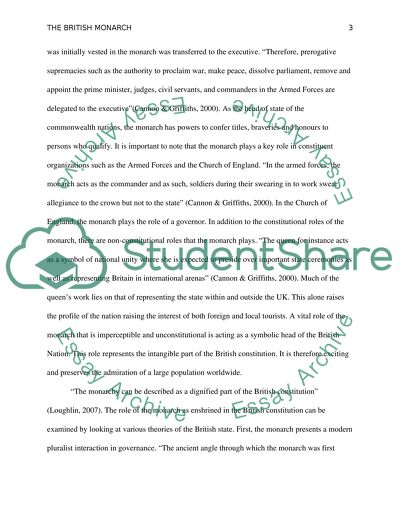Cite this document
(“The British Monarchy is a dignified part of the Constitution. Why Essay”, n.d.)
Retrieved from https://studentshare.org/history/1470764-the-british-monarchy-is-a-dignified-part-of-the
Retrieved from https://studentshare.org/history/1470764-the-british-monarchy-is-a-dignified-part-of-the
(The British Monarchy Is a Dignified Part of the Constitution. Why Essay)
https://studentshare.org/history/1470764-the-british-monarchy-is-a-dignified-part-of-the.
https://studentshare.org/history/1470764-the-british-monarchy-is-a-dignified-part-of-the.
“The British Monarchy Is a Dignified Part of the Constitution. Why Essay”, n.d. https://studentshare.org/history/1470764-the-british-monarchy-is-a-dignified-part-of-the.


